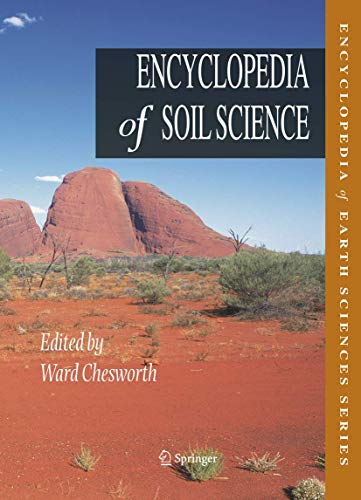Soil is the most important resource of the solid earth that humans use. It is the source of most of our food and fiber, much of our building materials, and the repository of most of our wastes. Over the last 10,000 years we have learned to manipulate it for our purposes to such a degree that our ecological footprint has notably modified about two thirds of the soils of the Earth. The Encyclopedia of Soil Science provides a comprehensive, alphabetical treatment of basic soil science in a single volume. It constitutes a wide ranging and authoritative collection of some 160 academic articles covering the salient aspects of soil physics, chemistry, biology, fertility, technology, genesis, morphology, classification and geomorphology. With increased usage of soil for world food production, building materials, and waste repositories, demand has grown for a better global understanding of soil and its processes. Longer articles by leading authorities from around the world are supplemented by some 430 definitions of common terms in soil sciences.
Ward Chesworth is Professor Emeritus of Geochemistry at the University of Guelph, Ontario, Canada. He co-edited Weathering, Soils and Paleosols, and three volumes of the annual Hammond Lecture Series broadcast in part by the Canadian Broadcasting Corporation: Malthus and the Third Millennium, Sustainable Development, and The Human Ecological Footprint. He co-wrote Perspectives on Canadian Geology. In 2003 he received the Halbouty Prize of the Geological Society of America, of which he is a Fellow.
Professor Emeritus, University of Guelph (Selected GSA Fellow in 2005)
"Ward Chesworth's contributions are based on research as a geochemical petrologist focusing on soil petrology, defining conditions for sustainable agriculture through reducing stresses, demands, and abuses on Earth, including water, soil, and the environment. He has made major basic contributions to the application of geology for sustainable societies."
